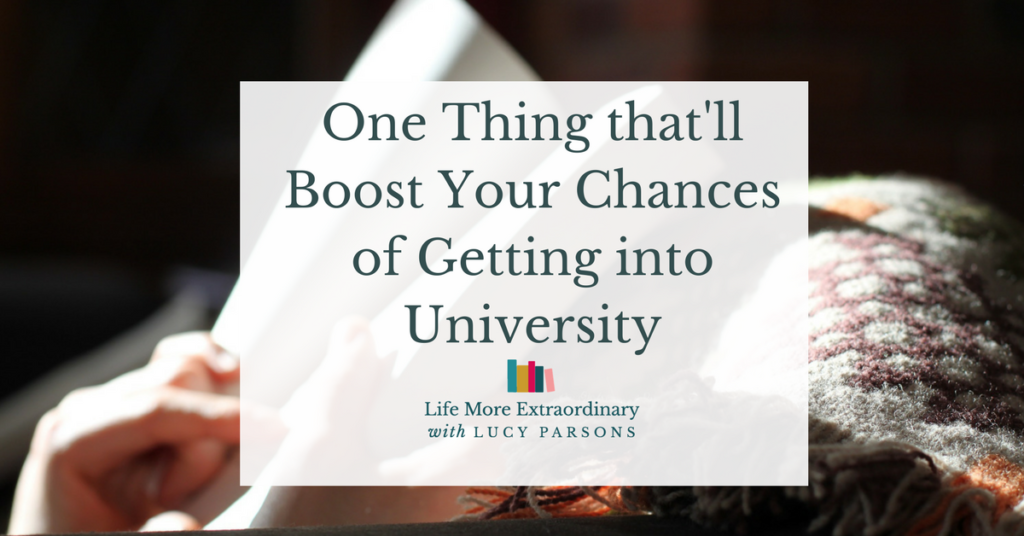One thing that’ll boost your chances of getting into university

Do you want to go to university?
For many young ambitious people university is the next step on the road to achieving their hopes and dreams.
But there's a lot of confusion and a lack of understanding about how to stand out from the crowd when you apply.
If you do this one thing it will majorly boost your chances of a place at your chosen university.
What is it?
Reading around your subject.
Why do you need to read around a subject?
Put yourself in someone else's shoes…
Firstly, put yourself in the shoes of the people reading your application at your chosen university.
They have made it their life's work to study the subject you're applying for. They're passionately interested in it and want to find people to teach who will be just as passionate and committed as they are. This makes their job more interesting and easier.
They have to read dozens, if not hundreds, if not thousands of applications every year. Can you imagine what it's like to read through personal statement after personal statement trying to sift through who's going to be a good fit for the course?
What you should be thinking is – how can I make their job easier?
Answer: make yourself stand out from the crowd.
How do you make yourself stand out from the crowd?
Demonstrate that you're passionately interested in the subject you've chosen to study. Now, there are many ways you can do this. They range from paid summer jobs to voluntary work; from work experience to getting out and about in the world. But, reading is key.
If you're willing to put time and effort into selecting relevant books, reading them and thinking about them before you get to university, the university can make a fairly certain bet that you're going to be an engaged and interested student.
When you weave the reading you've done into your personal statement, the university will know they're on to a good thing with you.
If you can't be bothered to do this, or you find the reading boring then you'll know that either university, or this course, aren't for you. You'll be able to start considering other options before you make an expensive and time-consuming mistake by applying for or starting a course that isn't for you.
How do you read around a subject?
Firstly, you have to know what that subject entails. So, if you want to study anthropology, look up a definition of that subject. You'll find something like this:
The study of humankind. In particular, the comparative study of human societies and cultures and their development. The science of human evoluation, zoology and ecology.
Once you know this, you can choose an area of the subject that you find most interesting and start searching for books on that subject. But it doesn't have to stop there. You can read relevant news articles, journals or magazines. You could even set up Google alerts. Just read, read, read. And think about what you read.
Don't just read around a subject….
Don't just restrict your reading to your chosen subject, though. You'll get too narrow and boring. Read novels, biographies and autobiographies and books on subjects that are closely connected to your chosen subject. Read personal development books or self-help books to help you improve aspects of your character that hold you back e.g. anxiety or lack of organisation.
How to write about your reading in your personal statement
Once you've read around your subject, you need to write about your reading in your personal statement. But, the last thing you should do is write a boring list of all the things you've read. Instead, there's a very particular (and much more interesting) way of writing about your reading that demonstrates your intellectual curiosity (which is what universities are generally looking for).
Find out how to write about your further reading in my Personal Statement Masterclass.

